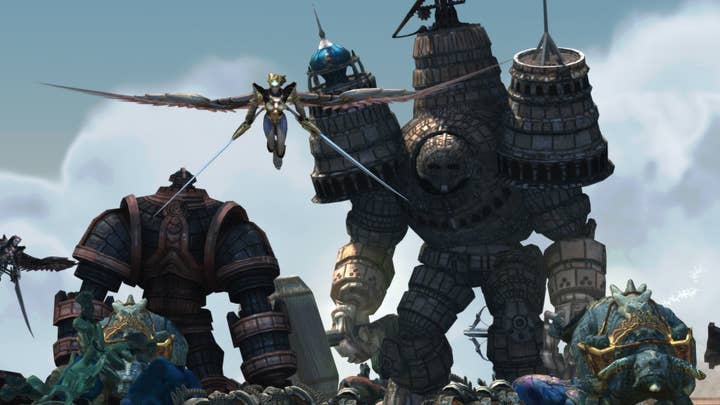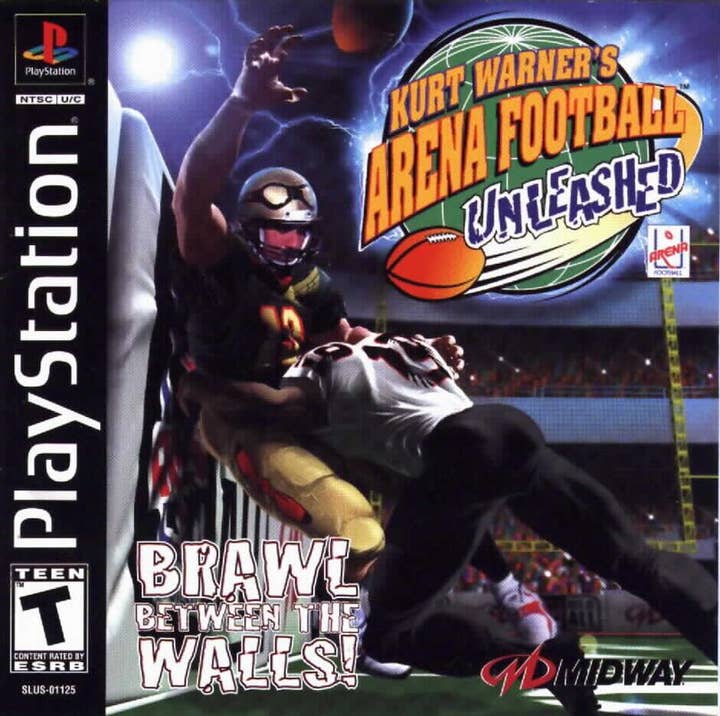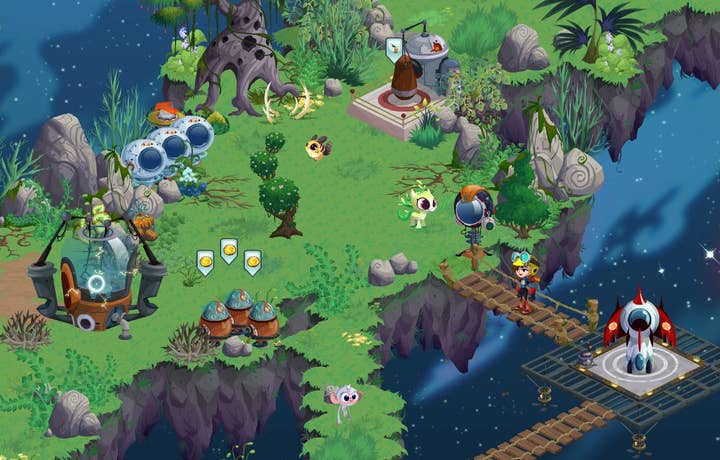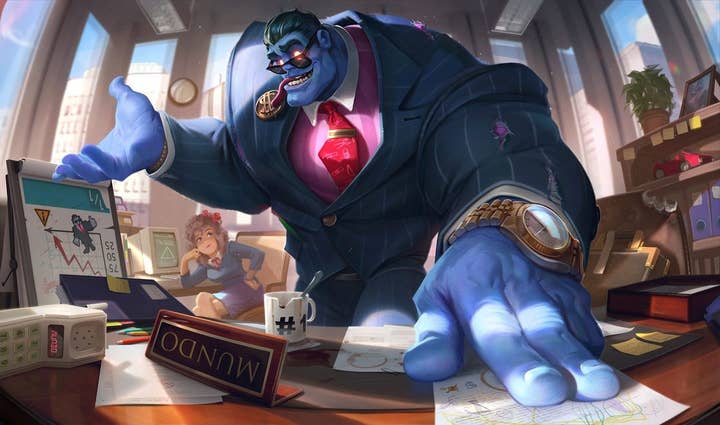A poor job of Riot control | 10 Years Ago This Month
League of Legends maker overplays its hand by trying to ban pro players from streaming other companies' games
The games industry moves pretty fast, and there's a tendency for all involved to look constantly to what's next without so much worrying about what came before. That said, even an industry so entrenched in the now can learn from its past. So to refresh our collective memory and perhaps offer some perspective on our field's history, GamesIndustry.biz runs this monthly feature highlighting happenings in gaming from exactly a decade ago.
Looking back on the 10 Years Ago This Month columns covering 2013, there's a recurring theme of companies attempting significant power grabs and hilariously falling flat on their face in the process.
You saw it with the bungled launch of EA's SimCity, with an always-online requirement that was widely assumed (and later confirmed) to be a fig leaf excuse to slap some DRM on a game that didn't need it.
You saw it all year long with the Xbox One, which "lost the worst generation to lose" in part because Microsoft tried to upend the status quo to cut out second-hand game sales in an industry that was beginning an inexorable shift to digital distribution anyway.
It's only fitting that we finish off the 2013 batch of 10 Years Ago This Month columns with another quickly regretted power grab
And while Unity's outrageously over-reaching Runtime Fee debacle (and subsequent sheepish backtracking) didn't happen until this year, you could arguably see the foundations of it – and future Unity CEO John Riccitiello's contortionist-like talent for shifting positions – foreshadowed in Riccitiello's 2013 comments, where he trash-talked opportunists and monetization-obsessed mobile games built on grinding players hooked into a routine, only to become Unity's CEO and spend the next nine years growing the company by doing its very best to enable opportunists and monetization-obsessed mobile games built on grinding players hooked into a routine.
So it's only fitting that we finish off the 2013 batch of 10 Years Ago This Month columns with another quickly regretted power grab, as League of Legends maker Riot Games decided it was big enough to ban League of Legends pro players from livestreaming a selection of other games, mostly consisting of competitors in the MOBA genre.
Naturally, the list of forbidden titles leaked immediately, and made Riot look less like the industry-leading esports company it was and more like an insecure also-ran terrified that people might realize MOBA is an actual genre with alternatives to League of Legends.
Looking at the list, I get why DOTA 2 and Blizzard's games are on there, but a lot of these games were clearly not going to be threatening League of Legends heading into 2014.

Gas Powered Games' Demigod came out in 2009 and is best-remembered (by me, anyway) for retailers breaking street date and servers falling over at launch. It's been available on Steam since 2011 and has 890 reviews as of this writing. That's perfectly respectable (as is the "mostly positive" review average) but it's clearly not on the same level as League of Legends.
Titan Studios' Fat Princess was a multiplayer capture-the-flag game released as a downloadable exclusive on PS3 and PSP. It got cromulent reviews, but it wasn't anything Riot had a reason to keep League of Legends pros from streaming. Unless the company was worried about cruel stereotypes and a game that objectified women by making them the flag in a capture-the-flag game, but I've got a hunch that wasn't something Riot would have a problem with.
Mushy Studio's Warlocks is… I'm going to be honest, I have no idea what that game is and Google is not helping much.
Naturally, pro players weren't thrilled about having Riot dictate new restrictions on their ability to make the most money possible from their almost certainly brief pro careers in a field where players commonly retire in their early-to-mid-20s.
Riot's Whalen Rozelle took to Reddit to explain why the restrictions were needed, saying, "I can't stress enough how these guys in the LCS [League of Legends Championship Series] are on the road to being real, legitimate athletes. This is new territory for a lot of teams (especially in esports), because the transition goes from being a group of talented individuals to being real icons of a sport and a league. Similarly, you probably wouldn't see an NFL player promoting Arena Football or a Nike-sponsored player wearing Reebok on camera."
Those are two deeply weird examples for Rozelle to have given, considering they are both specific examples of things we actually had seen.
First of all, Kurt Warner's Arena Football Unleashed launched on the PlayStation in May of 2000, just a few months after Warner was named MVP of the Super Bowl for guiding the St. Louis Rams to the NFL championship.

Second of all, the most iconic Nike-sponsored player of all-time, Michael Jordan, wore Reebok on camera at the 1992 Summer Olympics when the US "Dream Team" won gold. He covered up the Reebok logo during the medal ceremony, but even that is remembered as an example of Jordan's unusual loyalty to his primary sponsor rather than the norm.
And we can't expect Rozelle to have predicted this, but since then we've even seen shoe sponsors letting their athletes wear the competition while openly acknowledging the competition's product is just plain better.
Riot's commitment to the policy fell apart almost as quickly as Rozelle's justifications, and Riot would partially backtrack on its new streaming restrictions a few days later, thoroughly chastened by fans and players. Pro players still couldn't take money to promote other games, but they could play whatever titles they felt like on stream.
"The way we chose to deal with this was clearly an overreach. It hit our goal of preventing companies from advertising through LCS players, but it also encroached on pros' ability to have fun and entertain viewers during long Challenger queues – and we realize that's not cool," Riot explained.
The wildest part of Riot attempting to crack down on its pro players playing other games is that by virtue of being an esport, Riot already has an unprecedented amount of control over the situation because it owns the game in question. That isn't true of any of the traditional sports leagues Riot tries to emulate.
The Harlem Globetrotters can make a business off basketball without the NBA's say-so. With enough money, an upstart league can swoop in and take the talent out from underneath even an entrenched league like the PGA Tour. Kids in the park can decide it's more fun to play with five bases and four strikes, and Major League Baseball couldn't stop them if it wanted to.
"With esports, those kids in the park playing by their own rules would be begging for a lifetime ban"
But with esports, those kids in the park playing by their own rules would be begging for a lifetime ban, Pete Rose-style. It would be a worse punishment than Rose got, actually, because they would actually have lost all their gambling winnings (stuff they got from loot boxes) as well.
As a business, it makes straight-forward sense for Riot to try to keep competitors from gaining prominence off its pro players. But that's not the way actual sports works. In traditional sports, the purest direct competition you're going to get comes within the same sport: two teams with separate owners playing in the same league, located in the same city. The Los Angeles Lakers and Clippers, the Chicago Cubs and White Sox, the New York Giants and Jets. All those teams are competing over the local fanbase (lopsided as that competition might be sometimes), and ultimately that competition is beneficial, both for the teams involved and the sports as a whole.
The less direct competition comes from other sports leagues. The NHL and NBA seasons run almost concurrently, so if I'm living in Toronto, I'm splitting my limited free time and money for sports between the Toronto Maple Leafs and Toronto Raptors. (Depending on how you define their markets, roughly half of the NBA shares a market with an NHL team.)
Of course, the audiences for the two leagues diverge, but rather than treat that as a reason to pretend the other doesn't exist or to push people to pick one or the other, you'll more commonly see them looking at the other as an opportunity to grow new fans, with players from one sport making in-arena appearances at the other's games or otherwise cheering each other on. Also, if one of these teams goes through a rough stretch of 50 years or so (hypothetically speaking), maybe the other can give fans a reason to watch sports shows, listen to sports media, and otherwise stay involved in the same ecosystem, constantly giving the flagging team chances to win back their attention.
I think the control any developer has over their aspiring esport actually works against these things establishing themselves like traditional sports
In either case, interest and enthusiasm in one such operation tends to increase interest and enthusiasm in sports generally. People who learn to love one team or sport are then more likely to be open to other teams or sports when they happen to have something compelling to offer, whether it's a rising star, a veteran chasing a record, or a playoff run.
In this way I think the control any developer has over their aspiring esport – and the temptation to exercise it – actually works against these things establishing themselves like traditional sports. Control prevents people from engaging with the esport on their terms, in their own way. It prevents people with good ideas from building their own viable businesses off that idea when they know the game's creator may come in at any moment and decide it wants a slice of the pie. It limits the number of approaches to building the sport to just that of the developer (and a few ancillary operations with a bizarrely high tolerance for building a business entirely dependent on the whims of one other entity).
Of course, a lack of control has some perceived disadvantages. For example, the entire MOBA genre – League of Legends included – can largely be traced back to the Warcraft 3 mod Defense of the Ancients. And even though Blizzard might look at the success of the genre and wish it hadn't missed the boat on a phenomenon that sprung from its own games, that phenomenon likely would not have happened, or at least not come from Warcraft 3, if Blizzard had exercised stricter controls over what people could do with its games.
If esports is ever going to be what its advocates have promised for decades, I don't think it can happen for a game existing entirely within one company's ecosystem. As much as traditional sports have barriers to entry and anticompetitive entities, those sports are as valuable as they are specifically because it's impossible for someone to own them.
Naming rights, naming wrongs
This doesn't have much to do with gaming, but I find it funny so let's wallow in it for a moment.
In December of 2013, Kabam paid $18 million to rename UC Berkeley's football field to "Kabam Field at Memorial Stadium" for 15 years.
"At first, we said it sounds crazy," said Kabam CEO Kevin Chou at the time. "But they came to us and said here is the profile of the kind of company they are looking for. It is their first corporate sponsorship ever."
Three years later, Kabam broke up the band, selling its Vancouver studio and Marvel Contest of Champions to Netmarble and spinning off essentially the rest of the company as Aftershock, which was then sold to FoxNext.
The mobile game maker's wheeling and dealing in 2017 included getting out of the stadium naming rights deal for $5 million, considerably less than the $14.4 million remaining on the deal.
You might have thought the people running a school with a such a tremendous reputation as UC Berkeley would have learned that it might not be a great idea to sign long-term deals with start-ups in the notoriously volatile tech industry.
You might have thought that, but you'd be wrong.
In August of 2021, the school signed a $17.5 million ten-year deal for naming rights to the field to cryptocurrency exchange FTX.
Three months later, FTX declared bankruptcy and its CEO Sam Bankman-Fried stepped down, en route to last month's conviction on seven counts of fraud and conspiracy.
UC Berkeley suspended the naming deal within a week of the bankruptcy, and removed the FTX logo from its field even quicker than that.
I look forward to seeing whose name will grace the stadium next.
What else happened in December of 2013

● Insomniac Games gave up on the Facebook version of its social game Outernauts in order to focus on the iOS version. I'm including this here just because I think Spider-Man has made people forget just how far afield Insomniac got for about a decade there, what with the mobile division, the VR commitment, and having GameStop publish one of their games. They really tried to take advantage of their independence, but in the end making Sony's big exclusives just fit them better.
● YouTube stepped up its copyright monitoring with a Content ID sweep that demonetized a swath of videos thanks to copyright claims made by companies. (Content ID had existed for years before this, but the December sweep was a more aggressive use of it than had been seen prior.) While YouTube was practically built on copyright violations, publishers like Capcom, Blizzard, and Ubisoft rushed to release statements distancing themselves from the crackdown and telling YouTubers they would dismiss any contested claims because they obviously saw the value in YouTube as a marketing channel for their games, technical copyright violations or no.
While there was plenty of backlash and speculation/empty hope that YouTube would reverse course on an over-reaching policy like Riot Games, the company was steadfast in sticking by Content ID, and still relies on the system to this day.
● It was another grim December for the industry, as Microsoft shut down its Victoria, British Columbia studio, Terminal Reality ended its 19-year run, webcomic Penny Arcade axed its journalism outlet The PA Report, Blockbuster UK gave up the ghost, Warhammer Online: Age of Reckoning went dark, and CCP and Harmonix laid people off just before the holidays.
● EA, the reigning Worst Company in America, won a Best Place to Work Award.
● The NPD released its November sales report, showing that the Xbox One and PS4 launches had driven hardware revenues up mightily, while software sales dipped 24%, with one analyst pointing to Call of Duty: Ghosts as a particularly significant underperformer. (It still finished at the top of the charts, naturally.)
Good Call, Bad Call
BAD CALL: Me, in last month's column, thinking that the strong launches of the Xbox One and PlayStation 4 meant people would stop making "consoles are doomed" Bad Calls.
BAD CALL: Wedbush analyst Michael Pachter predicted that "The next generation of consoles is probably the last. We expect frequent model updates instead of new consoles." The PS4 Pro, Xbox One X-style mid-generation console refresh wasn't a thing yet, so he at least saw that one coming down the pipe. But they certainly haven't replaced new consoles, and as soon as Nintendo releases a successor to the Switch, that will make "the next generation of consoles" that Pachter referred to the penultimate one, at best.
We also know Microsoft at one point planned its Series X|S successor to launch in 2028, and Sony has trademarked for PS6 through PS10, so we're guessing they're not planning on leaving the console game anytime soon either. Plans can change, but we feel safe writing this up as a Bad Call.
BAD CALL: EA CEO Andrew Wilson was also a little grim on the prospects of the console makers, saying Microsoft and Sony were going to have their hands full protecting the big-screen TV experience from mobile and cable TV competitors?
"I think that three years from now, four years from now, they're going to be under some fairly stiff competition for the living room, from mobile providers, from Apple, from Google, from Roku, from Comcast, to try and own that living room experience," Wilson said.
Apple TV is a thing, and it lets you play games. Roku is a thing, and it lets you play games. Google's Stadia was a thing that let you play games, but now it's not. Google's Chromecast remains a thing, and it lets you play games. Comcast making the cut is still just plain weird, but we would later find out that EA had actually been in talks to stream its games to the cable company's customers (and would launch such an initiative in 2015).
Suffice it to say that simply providing a way to play games on a living room TV does not make something an existential threat to console games.
GOOD CALL: Take-Two Interactive president Karl Slatoff said the new consoles from Sony and Microsoft had the juice.
"This is a little bit different because there's a lot of noise around the gaming industry in general and a lot of questions about whether this console cycle will have the same juice as the previous console cycle. And there are a lot of doubters about whether or not the console market in general is dead. And I think the successful launches for the PS4 and the Xbox One prove obviously that console gaming is alive and well."
If juice is sales, then no, the new consoles didn't have the same juice because the Wii U was a monumental flop following up the Switch's monumental success. But the PS4 was a roaring success and the Xbox One was, uh, good enough, so Slatoff gets a Good Call on the strength of correctly identifying console gaming as being alive and well.
GOOD CALL: Sony's Andrew House said the PS4 could beat the PS3's lifetime sales total of about 80 million systems. The PS4 finished its run with sales of more than 116 million systems.
GOOD CALL: Epic VP Mark Rein threw a little shade on the "second screen" trend that was being pitched as an innovative new feature by all three console makers in 2013, saying, "I think we've yet to see the real value of the second screen idea, if you're talking about SmartGlass and companion apps and things like that… Where it fits into gaming, I don't know. I'm not sold on picking up my tablet to choose my play and then putting it back down and picking up my controller. It's kind of a wonky way to choose a play, so I don't know if that's how it's going to go or not."
Rein also gets a nod for correctly noting that the success of tablets and mobile devices didn't need to come at the expense of consoles, as he didn't believe "the whole 'one defeats the other' really is a thing."
BRASSY CALL: Nintendo of America president Reggie Fils-Aime was given the opportunity to pay lip service to the fans and credit online petitions and grassroots campaigns with the decision to localize Wii games like Xenoblade Chronicles, The Last Story, and Pandora's Tower. But Fils-Aime wasn't having it.
"I have to tell you-it doesn't affect what we do," Reggie said of fan campaigns. "We certainly look at it, and we're certainly aware of it, but it doesn't necessarily affect what we do… I'm paid to make sure that we're driving the business forward-so we're aware of what's happening, but in the end we've got to do what's best for the company. The thing we know [about petitions] is that 100,000 signatures doesn't mean 100,000 sales."
Maybe he was just sick of fans pestering him about Mother 3 and didn't want to encourage them.
HOPEFULLY A GOOD CALL: We'll end the last 10 Years Ago column from a very difficult 2023 by trying to find some optimism in a quote from Google's chief game designer Noah Falstein, who at the time said 2013 was an unexpectedly creative and exciting time in games that he "would have bet quite strongly against" happening just a decade prior.
"It's a very cyclical business, and I can guarantee the euphoria I'm feeling now will not last forever," Falstein said. "I'm also optimistic that even if things get dark, there will be a new dawn beyond it."
See you in 2024.

